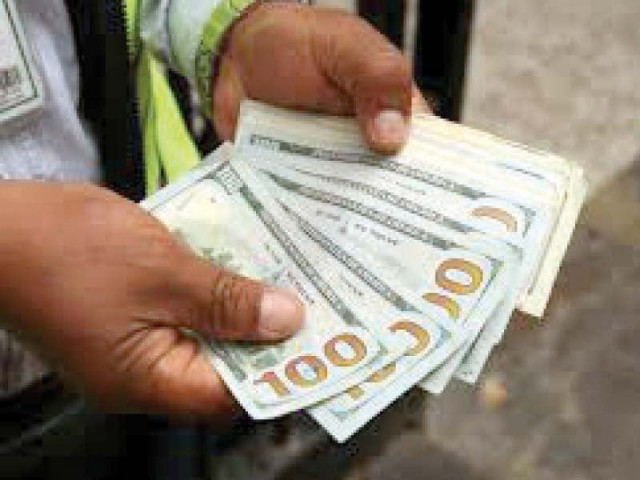Pakistan in talks with China to borrow $1b
Government is also expecting another $200m from a Chinese bank to boost foreign reserves

The government was ready to float bonds but reversed the decision after financial advisers informed it that the 10-year bond may cost it 7.3%. PHOTO: REUTERS
The World Bank and the Asian Development Bank (ADB) have already withheld $700 million as balance of payments’ policy loans due to deterioration in macroeconomic indicators in the past one year.
Pakistan borrows another $500m from Chinese bank
Amid declining foreign exchange reserves, the government is now in the process of scrutinising the loan term sheets and the agreement is expected to be reached this month, said sources in the finance ministry. The country has already obtained $1 billion as foreign commercial loan from the Industrial and Commercial Bank of China (ICBC) in the past three months.
The cost of borrowing from the Chinese bank could go over 5% this time due to increase in the London Interbank Offered Rate (Libor), said the sources. The six-month US dollar Libor was 2.228% on March 2, which would push the overall borrowing cost for the government in the range of 5.1% to 5.3%, said the sources. Last year, the Libor remained around 1.5%, which kept commercial borrowing cost below 5% for most of the deals.
During the last fiscal year, the government had also borrowed $2.3 billion from three Chinese financial institutions at three- to six-month Libor plus 2.7% to 3.02% spread, according to the finance ministry publication.
In addition to the upcoming borrowing, the government is also expecting to receive $200 million from a Chinese bank immediately to support foreign currency reserves, said the sources. The State Bank of Pakistan’s (SBP) official foreign currency reserves slipped to $12.4 billion last week, which are now close to the minimum threshold of two and half months of import bill cover.
For the last four years, the government has shifted its focus towards easy but relatively expensive source of financing. These commercial deals normally do not get much public attention, unlike the case of foreign bonds.
The decision to get $1 billion has been taken after the government last month called off the $1-billion Eurobond issue, said the sources. The government was ready to float bond but reversed the decision after financial advisers informed it that the ten-year bond may cost it 7.3%, said the sources.
In November, the government generated $1.5 billion through the 10-year Eurobond at a fixed rate of 6.875%, which was 455 basis points above the corresponding 10-year US Treasury benchmark rate. Since the start of the current fiscal year, total foreign commercial borrowings have already surged to $1.8 billion - far higher than $1 billion budgetary estimates.
Financing requirements
Last month, the Ministry of Finance informed the National Assembly Standing Committee on Finance that its gross external financing requirements for the remainder of this fiscal year were $9.5 billion.
The $9.5-billion financing requirement for February-June period has been worked out on the assumption of a possible $7-billion current account deficit and $2.5-billion debt servicing cost.
Total gross financing requirements for the fiscal year have now been revised upward to $24 billion as against the earlier estimates of $17 billion.
It had also informed the panel that the government was expecting $3.8 billion from traditional multilateral and bilateral lenders. However, a fresh assessment by the finance ministry over the weekend revealed that lending from the World Bank, the ADB and Islamic Development Bank would fall short of budgeted projections.
Against the budgetary estimates of $1.228 billion, the ADB is now expected to disburse around $925 million, said the sources. The Manila-based lender has already disbursed $498 million for projects’ financing in the first seven months. It dropped $200 million energy loan.
Despite promises, Pakistan unlikely to get heavy funding by June
The World Bank is now expected to give only $790 million even after making some extra efforts, which was far below the budgetary estimates of $1.2 billion. The World Bank has already disbursed $289 million in the July-January period but withheld $500 million policy loan.
Lending from China could increase to roughly $1.9 billion, which will partially compensate for the shortage, said the sources.
The Islamic Development Bank has already extended $995 million and its disbursements would remain below the target due to expiry of the crude oil financing agreement, said the sources.
Published in The Express Tribune, March 6th, 2018.
Like Business on Facebook, follow @TribuneBiz on Twitter to stay informed and join in the conversation.



















COMMENTS
Comments are moderated and generally will be posted if they are on-topic and not abusive.
For more information, please see our Comments FAQ